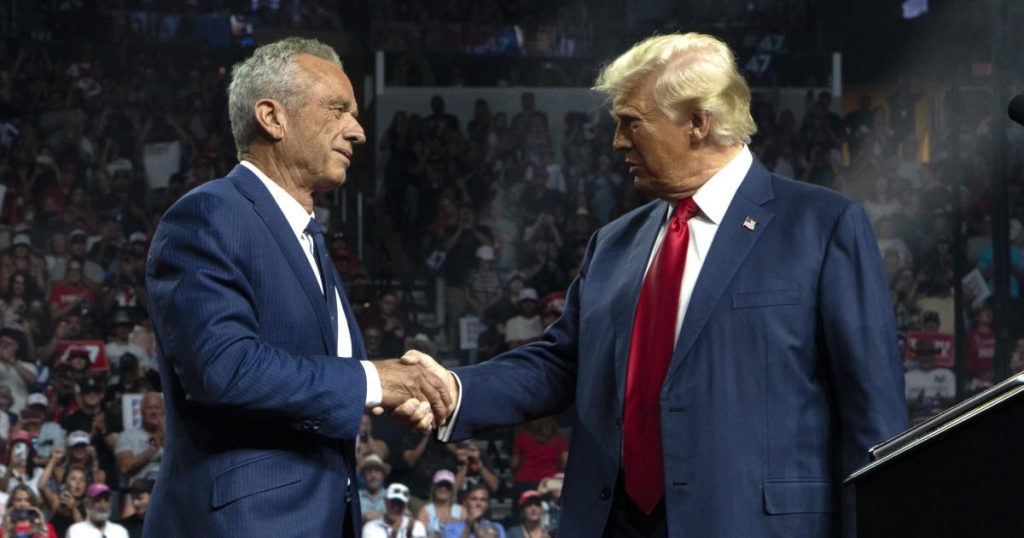Robert F. Kennedy Jr. is being considered as a potential nominee to head the Department of Health and Human Services (HHS) by some of President Trump’s allies, with hopes rising after Republicans secured a majority in the Senate. Despite his controversial views on vaccines and public health, Kennedy’s supporters believe he could combat chronic diseases and improve the public health system. Kennedy himself has been noncommittal about the possibility of being chosen as HHS secretary, but the recent election results have shifted the thinking on his nomination, as he may have delivered crucial votes in Trump’s favor.
While Kennedy has a strong agenda to combat chronic diseases and improve public health, there are concerns about his ability to navigate the bureaucratic structure of the HHS. Other potential picks for HHS secretary include Florida Governor Ron DeSantis, state surgeon general Dr. Joseph Ladapo, former Louisiana Gov. Bobby Jindal, and former deputy HHS secretary Eric Hargan. However, Kennedy has spent significant time with Trump and has a close relationship with the president-elect, which could play a role in his nomination as HHS secretary.
Kennedy’s platform, “Make America Healthy Again,” focuses on issues like FDA transparency, pharmaceutical advertising restrictions, and addressing conflicts of interest in agencies overseeing drugs and vaccines. He has also expressed a desire to stop water fluoridation and pursue other health-related reforms. However, some allies worry that Kennedy’s ambitious goals may distract him from his priorities if he were to become HHS secretary, as some responsibilities fall outside of his jurisdiction. Despite these challenges, Kennedy’s supporters believe that his leadership could bring significant reforms to the federal health research and promotion infrastructure.
As discussions continue about potential nominees for HHS secretary, Kennedy’s unique background and platform have garnered attention from Trump allies. His focus on combatting chronic diseases and improving public health align with Trump’s promises to “Make America Healthy Again,” and his close relationship with the president-elect could influence his nomination. However, the confirmation process in the Senate and concerns about Kennedy’s ability to navigate the bureaucratic structure of the HHS remain key considerations for his potential appointment. Amidst ongoing discussions about the future of the HHS, Kennedy’s supporters remain hopeful that his leadership could bring transformative changes to the nation’s public health system.














